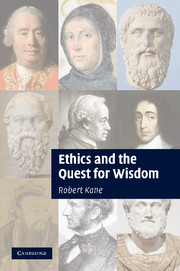Book contents
- Frontmatter
- Contents
- Acknowledgements
- 1 Introduction: pluralism and uncertainty
- 2 Openness
- 3 The retreat
- 4 The moral sphere
- 5 Fact and value
- 6 Value experiments
- 7 Virtues, excellences and forms of life
- 8 The fourth dimension
- 9 Aspiration
- 10 Wisdom
- 11 Objective worth
- 12 The Bach crystals
- 13 Human flourishing
- 14 The Faust legend and the mosaic
- 15 The good and the right (I): intuitionism, Kantianism
- 16 The good and the right (II): utilitarianism, consequentialism
- 17 The good and the right (III): contractualism
- 18 Politics, public morality and law: justice, care and virtue
- References
- Index
14 - The Faust legend and the mosaic
Published online by Cambridge University Press: 07 September 2010
- Frontmatter
- Contents
- Acknowledgements
- 1 Introduction: pluralism and uncertainty
- 2 Openness
- 3 The retreat
- 4 The moral sphere
- 5 Fact and value
- 6 Value experiments
- 7 Virtues, excellences and forms of life
- 8 The fourth dimension
- 9 Aspiration
- 10 Wisdom
- 11 Objective worth
- 12 The Bach crystals
- 13 Human flourishing
- 14 The Faust legend and the mosaic
- 15 The good and the right (I): intuitionism, Kantianism
- 16 The good and the right (II): utilitarianism, consequentialism
- 17 The good and the right (III): contractualism
- 18 Politics, public morality and law: justice, care and virtue
- References
- Index
Summary
EXCELLENCE AND RELATIVISM
It is one thing to argue that something (such as a work of art) may be excellent or worthy of clear recognition with praise from those who participate in a practice or form of life or those who have a suitably cultivated sensorium or can appreciate the excellence because it contributes to their flourishing. It is quite another thing to say that the same object should be recognized as objectively excellent and worthy of clear recognition with praise by all persons from all points of view – whether or not they participate in the practice or share the form of life or can themselves appreciate the excellence. This difference is the difference between what has merely relative worth for some persons or groups and what has non-relative worth for all (between the third and fourth dimensions of value). How do we know that the excellences recognized in our practices and form of life – even if they should contribute to our flourishing in ways described in Chapter 13 – are worthy of clear recognition with praise by all persons from all points of view, whether or not those other persons can appreciate or even understand the practices or excellences?
To answer this question we must return again to themes about the search for wisdom of Chapters 9 and 10: We cannot know that excellences achieved in our practices and traditions are objectively worthy of clear recognition with praise in this sense, if “know” means having the certain and final truth about it.
- Type
- Chapter
- Information
- Ethics and the Quest for Wisdom , pp. 160 - 170Publisher: Cambridge University PressPrint publication year: 2010



